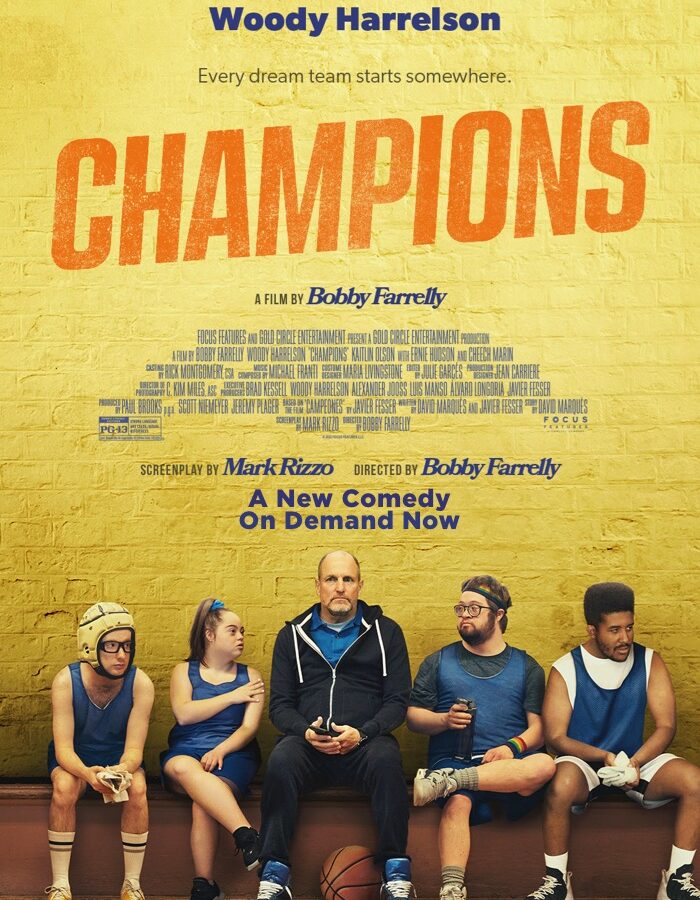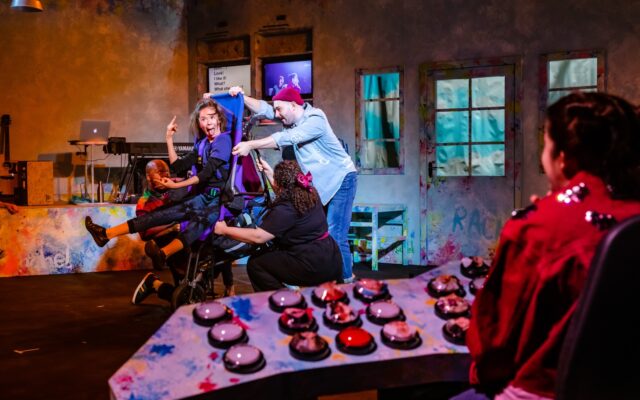We are in icy Des Moines. Grizzled, bitter, friendless old basketball coach Marcus Markovich (Woody Harrelson) is plying his trade as an assistant coach in the minor league, far below where he believes he belongs.
But worse is to come. Fired from this job, he gets a drink-driving conviction. The judge offers him a choice – 18 months in prison or 90 days’ community service coaching a basketball team comprising people with intellectual disabilities.
Prison versus playing
“When you say ‘intellectual disabilities’ your honour,” a shocked Markovich responds, “do you mean retarded Amer…” – before his lawyer shuts him up and accepts the lesser sentence. Markovich looks like he’d have preferred imprisonment.
From this point, the feelgood movie machine cranks into action, and you can guess where it goes.
Markovich turns up at the impoverished community centre where the team – assorted misfits who share nothing other than the label of intellectual disability and the ability to play basketball mostly very badly – are fed up with coaches breezing into their lives and then out again as soon as they get a better offer.
His coaching methods are lost on them but, slowly, the scales fall from his eyes and coach and team begin to gel. Will they reach the basketball Special Olympics final in Winnipeg Canada? Well, what do you think?
There are a few twists. Alex (played by the excellent Kaitlin Olson), who Markovich meets after swiping right on Tinder then parts with on less than friendly terms, turns out to be the sister of one of the players. Cue a tense relationship. And the star player consistently refuses to play for Markovich – why?
Harrelson plays the role just right – there is a good guy struggling to get out from somewhere deep within, but he is very well hidden.
There are also some excellent performances from the young cast of people with learning disabilities, particularly Kevin Iannucci as Johnny and Joshua Felder as Darius.
For sure, this film gets sentimental and saccharine at times – it’s an American feelgood movie, why wouldn’t it? – but there’s a lot that’s right about it.
It reflects a reality that people who are outsiders – either from birth or as a result of life events – are often thrown together, and often reluctantly so
The fact that Markovich comes into contact for the first time with people with learning disabilities only when he hits rock bottom could be seen as negative – is that how low he has fallen? But it also reflects a reality that people who are outsiders – either from birth or as a result of life events – are often thrown together, and often reluctantly so.
The relationship between coach and team is not over-sentimentalised, and there is nothing patronising about the interactions between the learning disabled and non-learning-disabled characters.
Conflicts and back stories
The players’ back stories are well done. They are not just foils to make their coach a better person – they characters in their own right, often tackling tough obstacles.
Olson captures very well Alex’s conflict between her feelings towards her brother and her own middle-aged disappointment with dull, small-town family life, peppered with soulless Tinder hook-ups.
This isn’t an Oscar contender, nor is it one of the great moments in the inclusion of actors with learning disabilities in film. But it is a step in the right direction, and has things to say about learning disability that are worth listening to.
It has been panned by some (but not all) members of the weary film critic crowd in the UK but I admit I enjoyed it. And so did the full house audience I watched it with.





